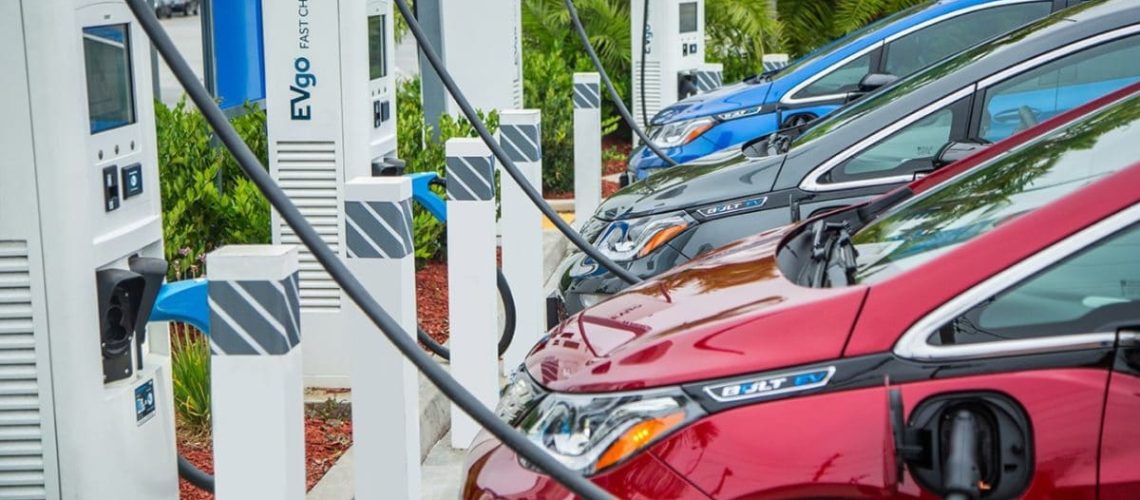Oregon, Washington, and California will join the clean cars program, mandating that all new cars, trucks and SUVs be zero emissions.
Advanced Clean Cars II is a set of rules that lay the groundwork for automakers to increase production of zero emission vehicles. In Oregon, the rules go into effect immediately, building on a previous rule scheduled to end in 2025. Automakers will have two years to plan for the first compliance step that comes with model year 2026 passenger vehicles.
The Oregon Department of Transportation has committed to investing $100 million to build more electric vehicle charging stations along major transportation corridors and in rural and underserved areas of the state over the next five years.
“With today’s adoption of the ACC II Rule, all those living in Oregon will benefit from the cleaner air and improved public health outcomes achieved by reducing pollution from transportation. This is especially true for low-income and underrepresented communities across the state who live closest to roadways and have been most often impacted by poor air quality,” said Leah Feldon, interim director of Oregon’s Department of Environmental Quality. “The commission’s action puts the state in a position to expand our charging infrastructure and ensure grid reliability. It also incentivizes auto manufacturers to send all electric model options to Oregon.”
Oregon’s DEQ estimates that, by 2040, ACCII rules would reduce 54.1 million metric tons of wheel to wheel carbon emissions, result in $8.7 million dollars in savings in pollution-related healthcare costs, and reduce 7,695 tons of air pollution. The transportation sector makes up about 40% of Oregon’s greenhouse gas emissions, 62% of which come from passenger cars and trucks.
“Adopting strong clean vehicle standards, alongside other states across the country, is one of the most important steps that Oregon can take to improve public health and accomplish our climate goals,” said David Collier, Oregon Sierra Club.
“This proposed rule will also make new and used electric vehicles more affordable and accessible to communities across Oregon. Oregonians will reduce their dependence on petroleum, gain access to more affordable EVs, substantially save money on fuel, vehicle maintenance and upkeep, reduce toxic air pollution, and make their communities much healthier places to live. DEQ’s rule is both an environmental and economic win for Oregon,” said Collier.
California adopted the Advanced Clean Cars II regulations in September, announcing plans to scale down light-duty passenger car, pickup truck and SUV emissions starting with the 2026 model year through 2035.
The regulations amend the Zero-emission Vehicle Regulation to require an increasing number of zero-emission vehicles, and relies on advanced vehicle technologies, including battery-electric, hydrogen fuel cell electric and plug-in hybrid electric-vehicles, to meet air quality and climate change emissions standards. These amendments support the governor’s 2020 Executive Order N-79-20 that requires all new passenger vehicles sold in California to be zero emissions by 2035. The Low-emission Vehicle Regulations were also amended to include standards for gasoline cars and heavier passenger trucks to continue to reduce smog-forming emissions.
California has the largest zero-emission vehicle market in the nation with more than 16% of new vehicles sold being zero-emissions or plug-in hybrids. The figure below shows the annual zero-emission vehicle requirement. Last week the California Energy Commission approved a nearly $3 billion plan to add 90,000 electric vehicle charging stations by 2025, more than doubling the number already in service.
In Washington, electric vehicles made up 11% of new vehicle sales in November, up from 6% for November 2021, according to the state’s Department of Licensing. But that is about to change, with the state legislature passing the Clean Cars 2030 bill, which requires that by 2030 all new light-duty vehicles sold or registered in the state be electric, with the exception of emergency vehicles. The bill now goes to Governor Inslee’s desk for his signature. The Clean Cars 2030 bill is similar to the California mandate, but it speeds up adoption by five years. It’s also a bill, as opposed to an executive order, which means that it would become law in the state of Washington.
Yesterday the United States Postal Service announced that it will acquire at least 66,000 battery electric delivery vehicles as a part of its strategy to replace its aging fleet. The Postal Service says its priority is to provide its carriers and communities with safer, more efficient vehicles as soon as possible. The greening of the fleet is part of the U.S. Postal Service’s overall network modernization efforts, which will cost $9.6 billion, paid for in part by the $3 billion appropriated under the Inflation Reduction Act.



